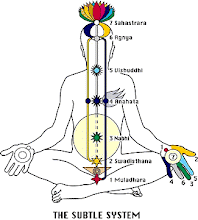Pilot study on ADHD children and meditation, done by Sydney University

By Danielle Teutsch, Medical Reporter
Children with attention deficit hyperactivity disorder (ADHD) will be taught to meditate as an alternative way of controlling their behaviour, in a Sydney program that is the first of its kind. The children, aged 10 and under, will be taught meditation techniques practised by devotees of Sahaja Yoga, a method of meditation founded in India. The techniques - intended to relax the mind and to improve concentration - include lying still, repeating affirmations and soaking feet in salty water.
The program will be run by the natural therapies unit at the Royal Hospital for Women at Randwick in January.
Program co-ordinator Dr Ramesh Manocha said the unit decided to set up a trial program after requests from a number of teachers and schools looking for better ways of controlling classes with ADHD children. "We are not particularly interested in the spiritual dimension of Sahaja Yoga, but its therapeutic use," he said. "ADHD is essentially a problem of attention control and meditation is a way of helping people control their attention span."
A small pilot study on ADHD children and meditation, done by Sydney University researchers this year, has shown promising results.
Meditation is thought to prompt changes in the brain similar to bio-feedback techniques or drug therapy.
Some families have already used meditation as an alternative to Ritalin. Concord mother Liallyn Fitzpatrick introduced her 14-year-old daughter, Grace, to Sahaja Yoga after Grace was diagnosed with ADHD last year. Grace now meditates up to five times a week. "She was on Ritalin for a while, but she doesn't need it any more," Mrs Fitzpatrick said. "She knows what she has to do to stay on top of it."
Dr Paul Hutchins, an expert on ADHD, who heads the Child Development Unit at the Children's Hospital at Westmead, said the efficacy of Ritalin had been well established scientifically. However he said alternative therapies such as meditation could be useful in reducing anxiety, which was a significant problem for many ADHD children.
"The idea that hyperactive children, who normally swing from the ceiling, will sit on the floor and breathe in one nostril to calm down may seem odd," he said. "But it's important to recognise that many children are anxious and that yoga may help them." Sydney psychologist Rosemary Boon, who specialises in ADHD, said she had been including meditation in her holistic treatment program for the past five years. "People are sick and tired of going to a pediatrician and walking out with a script for Ritalin," she said. "They are on the lookout for something that is less invasive and more body-friendly." Barbara Goldsmith, from the North West Sydney ADD Support Group, said she wished such a program had been available when her three children, who all have ADHD, had been growing up.
"There is a demand out there for alternative therapies," she said. Parents, who are interested in having their children take part in the meditation program.Children must have a formal ADHD diagnosis.


<< Home